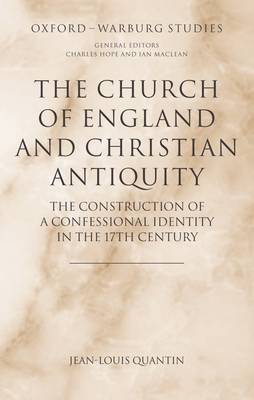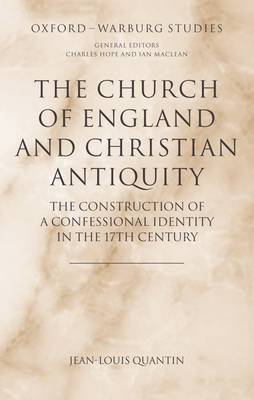
- Retrait gratuit dans votre magasin Club
- 7.000.000 titres dans notre catalogue
- Payer en toute sécurité
- Toujours un magasin près de chez vous
- Retrait gratuit dans votre magasin Club
- 7.000.0000 titres dans notre catalogue
- Payer en toute sécurité
- Toujours un magasin près de chez vous
The Church of England and Christian Antiquity
The Construction of a Confessional Identity in the 17th Century
Jean-Louis (, Professor of the History of Early Modern Scholarsh
301,95 €
+ 603 points
Description
Jean-Louis Quantin shows how the appeal to Christian antiquity played a key role in the construction of a new confessional identity, 'Anglicanism', maintaining that theologians of the Church of England came to consider that their Church occupied a unique position, because it alone was faithful to the beliefs and practices of the Church Fathers.
Spécifications
Parties prenantes
- Auteur(s) :
- Editeur:
Contenu
- Nombre de pages :
- 518
- Collection :
Caractéristiques
- EAN:
- 9780199557868
- Date de parution :
- 12-02-09
- Format:
- Livre relié
- Dimensions :
- 218 mm x 145 mm
- Poids :
- 768 g

Les avis
Nous publions uniquement les avis qui respectent les conditions requises. Consultez nos conditions pour les avis.






